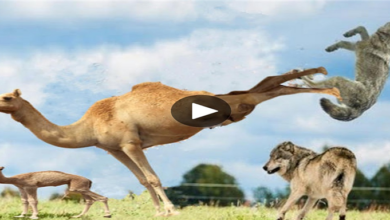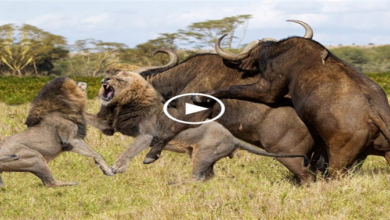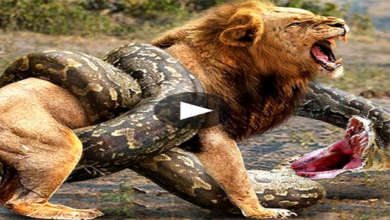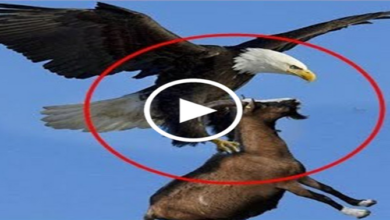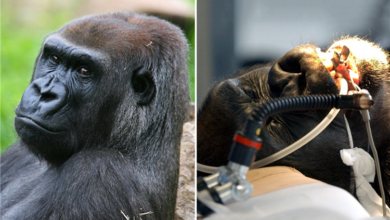Eight apes contract the virus at San Diego Zoo after staff notice them coughing

Several gorillas at the San Diego Zoo Safari Park have tested positive for the coronavirus in what is believed to be the first known cases among such primates in the United States and possibly the world.
The park’s executive director, Lisa Peterson said that eight gorillas that live together at the park are believed to have the virus and several have been coughing.

It appears the infection came from a member of the park’s wildlife care team who also tested positive for the virus but has been asymptomatic and wore a mask at all times around the gorillas.
Veterinarians are closely monitoring the gorillas and they will remain in their habitat at the park, north of San Diego, Peterson said. For now, they are being given vitamins, fluid and food but no specific treatment for the virus.
‘Aside from some congestion and coughing, the gorillas are doing well,’ Peterson said.
‘The troop remains quarantined together and are eating and drinking. We are hopeful for a full recovery.’
While other wildlife has contracted the coronavirus from minks to tigers, this is the first known instance of transmission to great apes and it is unknown if they will have any serious reaction.

Wildlife experts have expressed concern about the coronavirus infecting gorillas, an endangered species that share 98.4 percent of their DNA with humans and are inherently social animals.
The gorillas infected at the San Diego safari park are western lowland gorillas, whose population has declined by more than 60% over the last two decades because of poaching and disease, according to the World Wildlife Fund.
The safari park tested the troop of gorillas after two apes began coughing January 6th.
Zoo authorities tested some of fecal samples of the park’s gorillas and preliminary results two days later found the presence of the virus.
On Monday, the U.S. Department of Agriculture National Veterinary Services Laboratories confirmed the positive results.

“The test results confirm the presence of SARS-CoV-2 in some of the gorillas and does not definitively rule out the presence of the virus in other members of the troop,” it said.
The test results were confirmed by the U.S Department of Agriculture National Veterinary Services Laboratories.
Zoo officials are talking to experts who have been treating the coronavirus in humans in case the animals’ develop more severe symptoms.
It is not yet known if the gorillas will have a serious reaction to the disease that has killed 1.94 million humans.
They will remain together since separating them could be harmful to the gorillas that live in tight-knit groups.
‘This is wildlife, and they have their own resiliency and can heal differently than we do,’ Peterson said.

The safari park on Monday added new precautionary measures for its staff, including requiring face shields and eye goggles when working in contact with the animals.
The San Diego Zoo Safari Park, where the gorillas are kept, has been closed to visitors since early December as record cases began surging through Southern California.
Workers are all required to wear personal protective equipment such as masks when near the gorillas, the zoo said.
The coronavirus has also been found in a number of other wild-animal species in captivity, including several lions and tigers at the Bronx Zoo in New York and four lions at the Barcelona Zoo in Spain.

But the gorillas in San Diego are believed to mark the first known case of infections confirmed in apes.
The virus also has shown up in a number of household dogs and cats.
Last month, the USDA said it had confirmed the first known case of the coronavirus in an animal in the wild, a mink, following an outbreak among farmed minks that killed 15,000 of the animals.

